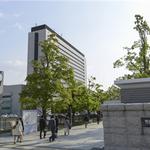Fukuoka University is a famous private university located in Fukuoka City, Fukuoka Prefecture, Japan, with a long history and excellent educational tradition. The following is a detailed introduction to Fukuoka University:
Basic Information
Name: Fukuoka University (Japanese: Fukuoka University, ふくおかだいがく)
English Name: Fukuoka University
Abbreviation: Fukuda
Address: 1-1 Shimokawabata-cho, Hakata-ku, Fukuoka City, Fukuoka Prefecture
Establishment Time: 1934
Type: Private University
Historical Evolution
1934: Fukuoka Higher Commercial School was established, which is the predecessor of Fukuoka University.
1944: Renamed Kyushu Economic College.
1946: Renamed Fukuoka Economic College again.
1949: Restarted as Fukuoka University of Commerce.
1956: Added the School of Law and Economics, and renamed the current Fukuoka University.
1960s to present: Gradually expanded the scope of education, added new disciplines and research directions, and improved the quality of education and internationalization.
Disciplines
Fukuoka University has multiple departments and disciplines, covering a wide range of academic fields. The specific disciplines are as follows:
Faculty of Letters
Cultural Department
History Department
Japanese Literature Department
English Department
German Department
French Department
East Asian Regional Languages Department
Faculty of Law
Law Department
Faculty of Economics
Economics Department
Business Department
Faculty of Sociology
Social Sciences
International Relations Department
Faculty of Science
Mathematics Department
Physics Department
Chemistry Department
Biology Department
Earth Environment Department
Faculty of Engineering
Mechanical Engineering Department
Electrical and Electronic Engineering Department
Information Engineering Department
Material Engineering Department
Architecture Department
Environmental Engineering Department
Faculty of Medicine
Medical Department
Nursing Department
Faculty of Pharmacy
Pharmacy Department
Graduate Faculty
Graduate School of Letters (Master's and Doctoral Programs)
Graduate School of Law (Master's and Doctoral Programs)
Graduate School of Economics (Master's and Doctoral Programs)
Graduate School of Sociology (Master's and Doctoral Programs)
Graduate School of Science (Master's and Doctoral Programs)
Graduate School of Engineering (Master's and Doctoral Programs)
Graduate School of Medicine (Master's and Doctoral Programs)
Graduate School of Pharmacy (Master's and Doctoral Programs)
Educational Features
Practical Education: Emphasis on the combination of theory and practice, providing a wealth of internships and practical activities to help students accumulate practical work experience.
International Education: Actively promote international education, establish cooperative relations with universities in many countries, and provide overseas exchange programs.
Professional Training: Focus on students' professional skills training, and cultivate professionals with solid theoretical foundation and practical ability.
Career Support: There is a dedicated career guidance center that provides services such as career planning, employment consultation and internship recommendations.
Campus Facilities
Library: It has rich book resources and a modern reading environment.
Laboratory: Equipped with advanced experimental equipment to support scientific research and practical teaching.
Sports Facilities: Including gymnasiums, sports fields, etc., to promote students' physical and mental health.
Student dormitories: provide comfortable accommodation and facilitate students' living and learning.
Student activities
Club activities: there are many student clubs covering academic, cultural, sports and other fields.
Volunteer activities: encourage students to participate in community services and social welfare activities to cultivate social responsibility.
Admission requirements
Entrance examination: usually includes written test and interview. Please refer to the school's official website for specific requirements and procedures.
International students: accept international students to apply, and they must meet language proficiency and other relevant requirements.
Contact information
Tel: +81-92-471-1111
Fax: +81-92-471-1112
Email: admission@fukuoka-u.ac.jp
School motto
School spirit: cultivate talents with broad education and international vision, and contribute to the development and progress of society.
Educational philosophy: focus on the cultivation of comprehensive quality and professional knowledge, and strive to cultivate talents with social responsibility and leadership.
Notes
Reputation: Fukuoka University enjoys a good reputation in Fukuoka Prefecture and throughout Japan, especially in the fields of literature, law, economics, sociology, science, engineering, medicine and pharmacy.
Further study: Graduates can choose to continue their studies in graduate school or other higher education institutions.
The above is a basic introduction to Fukuoka University. If you have more specific questions or need detailed information, it is recommended to visit the school's official website or contact the relevant department of the school directly.
-
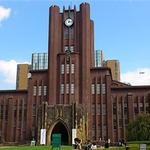
The University of Tokyo
-
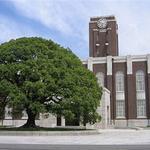
Kyoto University
-
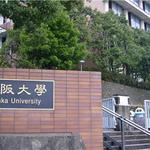
Osaka University
-
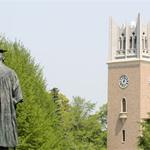
Waseda University
-
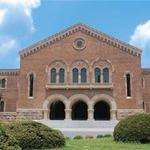
Hitotsubashi University
-
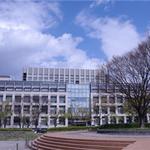
Nagoya University
-
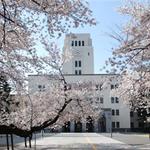
Tokyo Institute of Technology
-
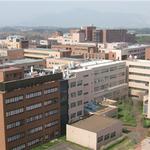
University of Tsukuba
-
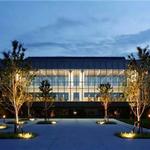
Keio University
-
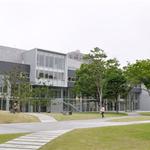
Tohoku University
-

Mesoamerican University
-

Istmo University
-

Mariano Galvez University of Guatemala
-

Regional University of Guatemala
-

Galileo University
-

Francisco Marroquín University
-

Rafael Landívar University
-

University of the Valley of Guatemala
-

University of San Carlos of Guatemala
-

Technological Institute of Tlaxcala Plateau
-

Golfo University
-

Technological University of South Sonora
-

Technological University of Huejotzingo
-

Tizimín Institute of Technology
-

Chilpancingo Institute of Technology

